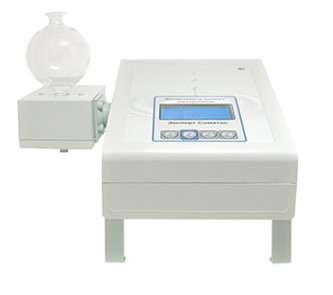The European Union has introduced the 13th package of sanctions against Russia

The European Union has introduced the 13th package of sanctions against Russia, which includes 106 individuals and 88 legal entities, according to a press release from the European Council.
As part of the 13th sanctions package, the EU expanded the list of goods prohibited for export to Russia, adding possible components for the development and production of unmanned aerial vehicles (UAVs), including electrical transformers, static converters and inductors. The new measures also prohibit the supply of aluminum capacitors with fixed capacitance, which, according to the organization, are used for military purposes. However, the supply of transformers is allowed until May 25, 2024 , under contracts concluded before February 24. The volume of direct supplies of transformers from the EU to Russia in 2023 amounted to €46 million, aluminum capacitors - less than €2 million.
In addition, export restrictions have been imposed on 27 entities for allegedly supporting Russia’s military-industrial complex (MIC). “They will be subject to stricter export restrictions on dual-use goods and technologies,” the release said. Some of the entities that the EU says were involved in circumventing trade restrictions are located in third countries, including:
Guangzhou Ausay Technology Co Limited ( China ); Shenzhen Biguang Trading Co. Ltd (China); Yilufa Electronics Ltd (China); RG Solutions Limited (Hong Kong, China); Si2 Microsystems Pvt Ltd (India); Yildiz Çip Teknoloji Elektronik Elektrik Bilgisayar Malzemeleri Ticaret Sanayi Limited Sirketi ( Turkey ); Conex Doo Beograd-Stari Grad (Serbia); Thai IT Hardware Co., Ltd (Thailand); TOO Elem Group ( Kazakhstan ); Euro Asia Cargo (Private) Ltd. (Sri Lanka).17 companies that fell under the restrictions are Russian.
Earlier, the Chinese embassy in the UK threatened to respond to sanctions against three Chinese companies that London included in a new package of restrictive measures against Russia on February 22.
The European Council reported that the UK has joined the list of partner countries (along with Norway and Switzerland) from which EU importers do not need documentary evidence that the raw materials do not originate in Russia when importing goods made from ferrous metals. When importing such products from other countries, EU importers are required to confirm that these products are made from ferrous metals of non-Russian origin.
RBC Pro Development Program Master 52 skills in a year The development program is a convenient tool for continuous learning of new skills for a successful career How to force yourself to constantly move forward - nine simple tips Networking: how to turn any acquaintance into a useful business connection Elon Musk test: do you have the traits of a visionary leader How to maintain high results with the help of planning: 10 practices Tiffany Bova: storytelling is your main competitive advantage A million-dollar environment: how to find friends with whom you want to develop Not a single idea in your head. How to relearn how to be creative What Henry Ford was wrong about: 6 harmful pieces of advice from world business gurus Why and how to establish contact with your body and what does a career have to do with it Think like Jeff Bezos . What algorithms do successful businessmen use There is no point in making a super product for months: 6 rules of the founder of VkusVill Sprinkle ashes on your head and disappear from sight: what harms your reputationAccording to the European Council, sanctions against Russia have so far affected more than 2,000 individuals and legal entities. The assets of individuals subject to sanctions in the European Union are frozen, and citizens and companies of the Union are prohibited from providing them with funds. Individuals are additionally subject to a travel ban , which prevents them from entering the EU or transiting through the Union countries.
Euractiv reported the day before that the EU would begin work on a 14th sanctions package in the coming weeks. The US is also planning new sanctions against Russia in the near future. "At the direction of President [Joe] Biden, we will announce a major sanctions package on Friday [February 23] this week," White House National Security Council spokesman John Kirby said the day before.
On February 15, the FT reported that Hungary had blocked the adoption of the EU's 13th sanctions package against Russia over its restrictions on Chinese companies, but on February 19, Hungarian Foreign Minister Peter Szijjarto said Budapest would not stand in the way of the restrictive measures.
The previous, 12th package of sanctions was introduced by the EU on December 19. It included restrictions on the import of non-industrial diamonds, cast iron, copper and aluminum wire from Russia, as well as export restrictions on chemicals, lithium batteries, thermostats, DC motors and servo drives for drones. The sanctions list included 29 legal entities for "direct support of the Russian military-industrial complex."
On December 22, US President Joe Biden signed an executive order on measures against foreign banks and other financial institutions that, according to the US, are involved in deals related to supplies for the Russian military-industrial complex. American authorities also received the ability to ban the import of diamonds, seafood and alcoholic beverages of Russian origin, which have undergone a significant transformation outside of Russia.
The EU imposed its first sanctions on February 22, 2022, due to Russia's recognition of the DPR and LPR. The sanctions limited access to the European financial market and services, affected the defense industry and some banks. On February 25 of the same year, against the backdrop of the outbreak of the conflict in Ukraine, the EU imposed sanctions against President Vladimir Putin and Foreign Minister Sergei Lavrov.
In total, the EU has imposed 13 sanctions packages against Russia since February 2022. They affected the Central Bank's reserves, large entrepreneurs and their assets, and a wide range of imports and exports.
Russia considers Western sanctions illegal. Presidential spokesman Dmitry Peskov warned in December that the restrictions would remain in place for years to come.



























































